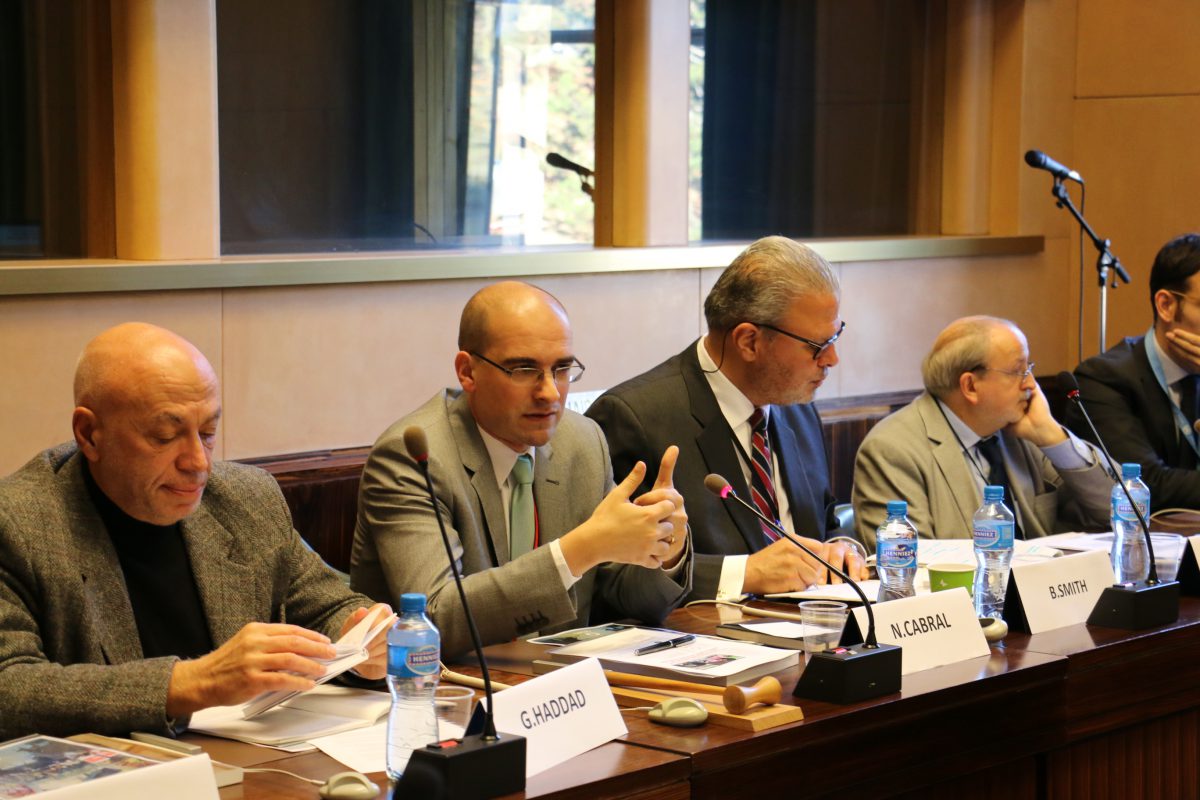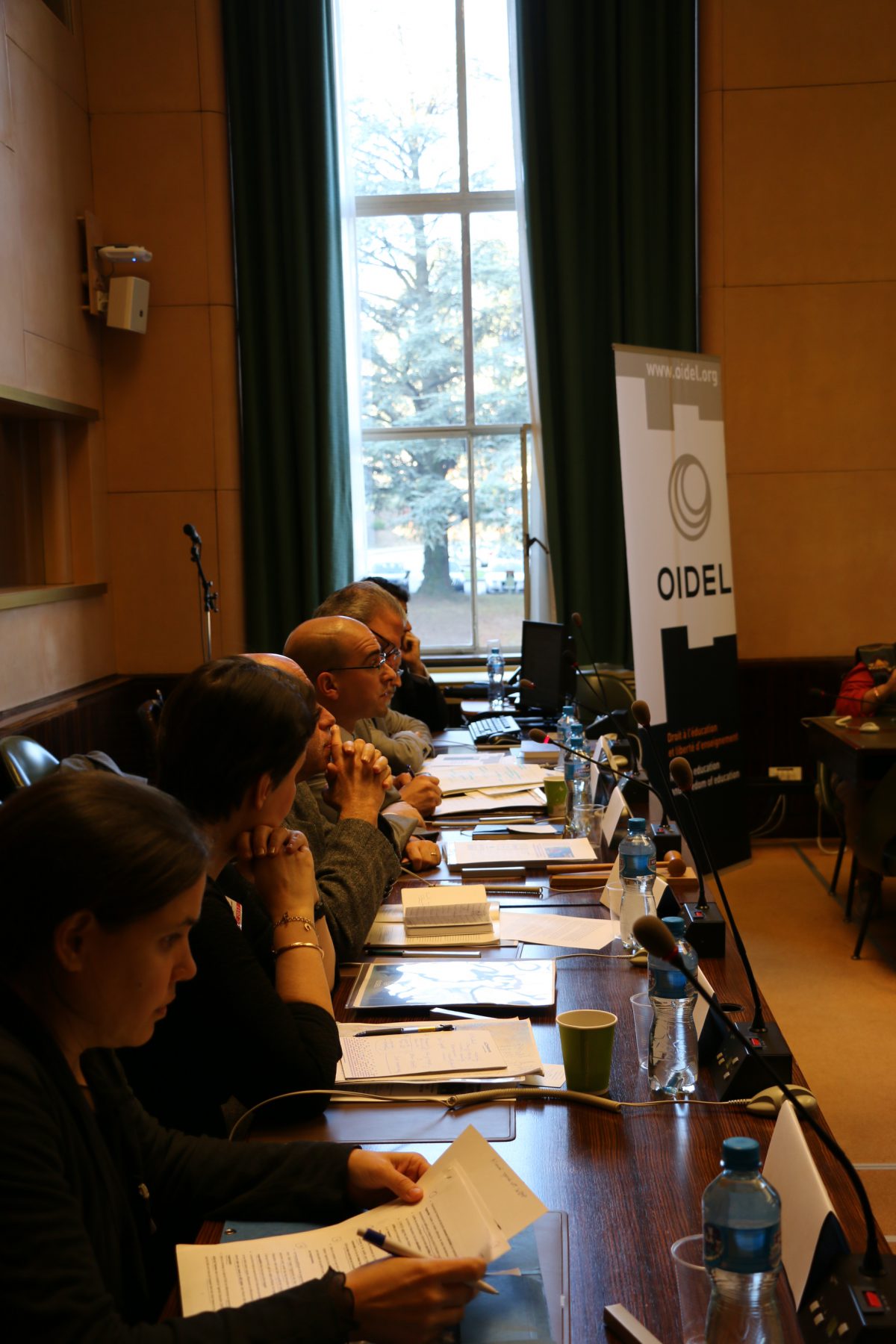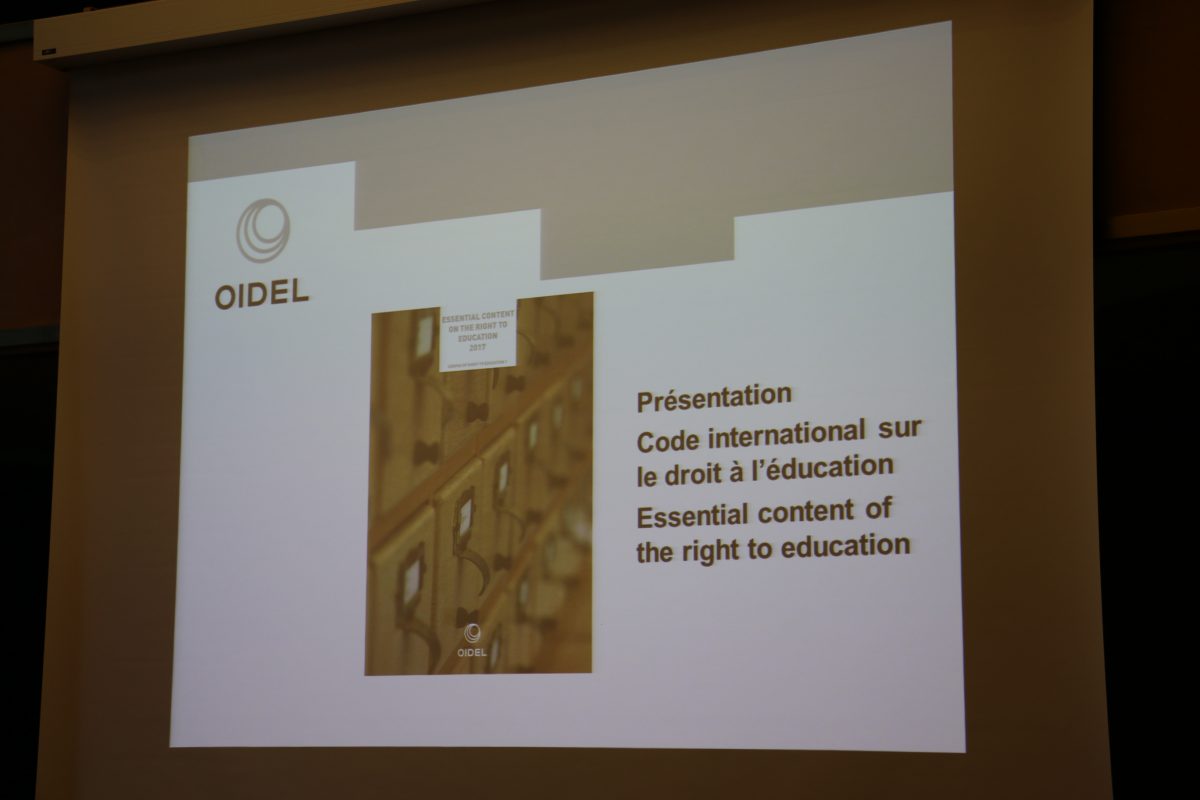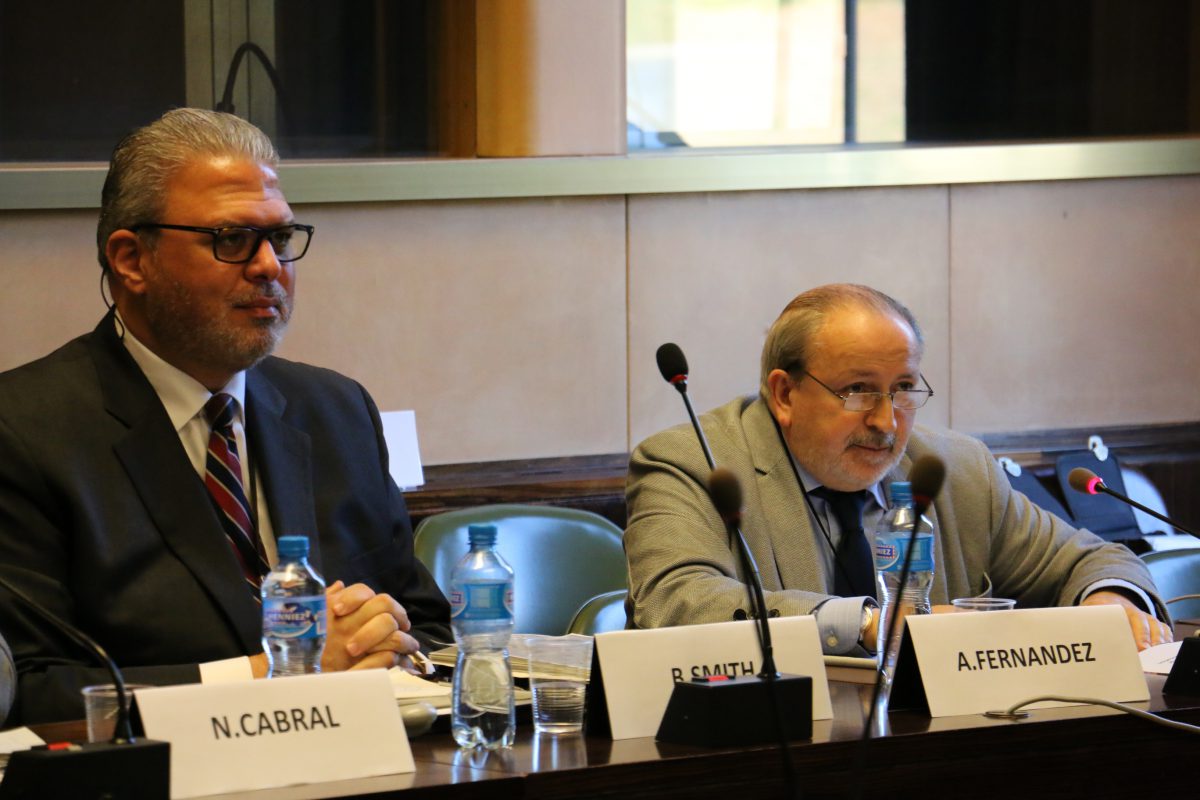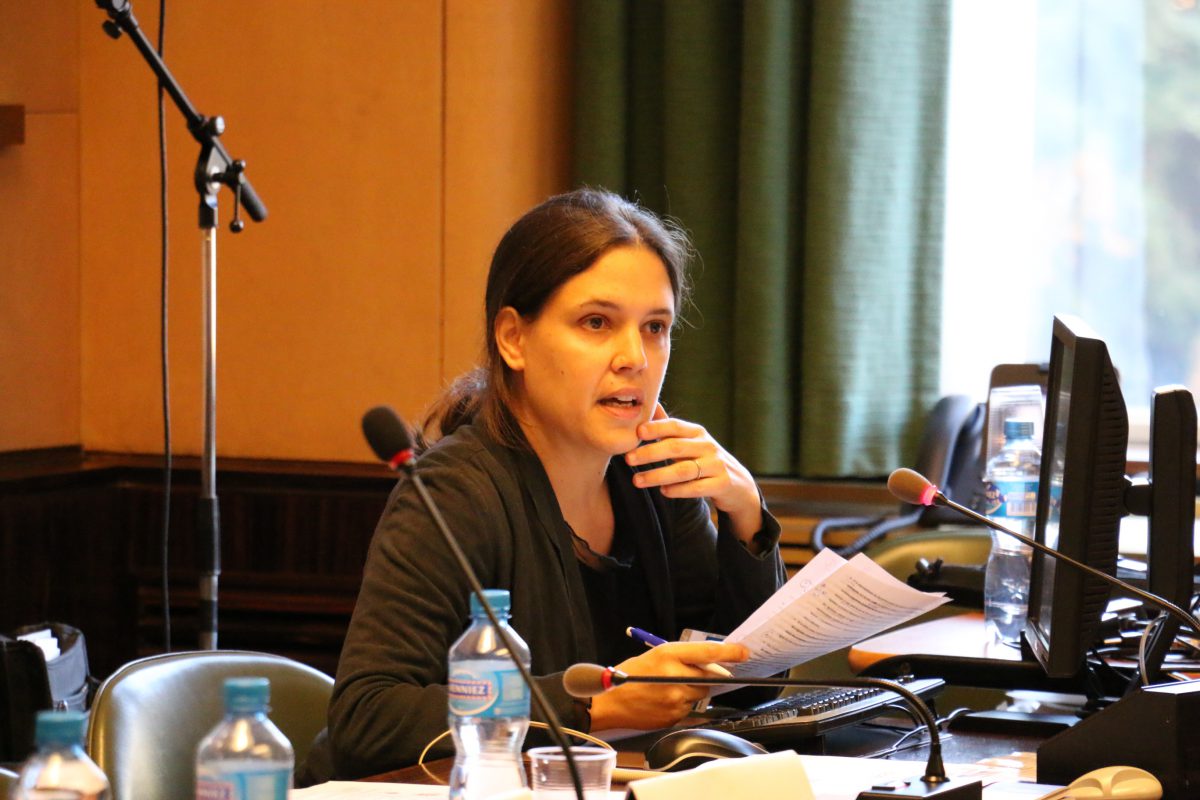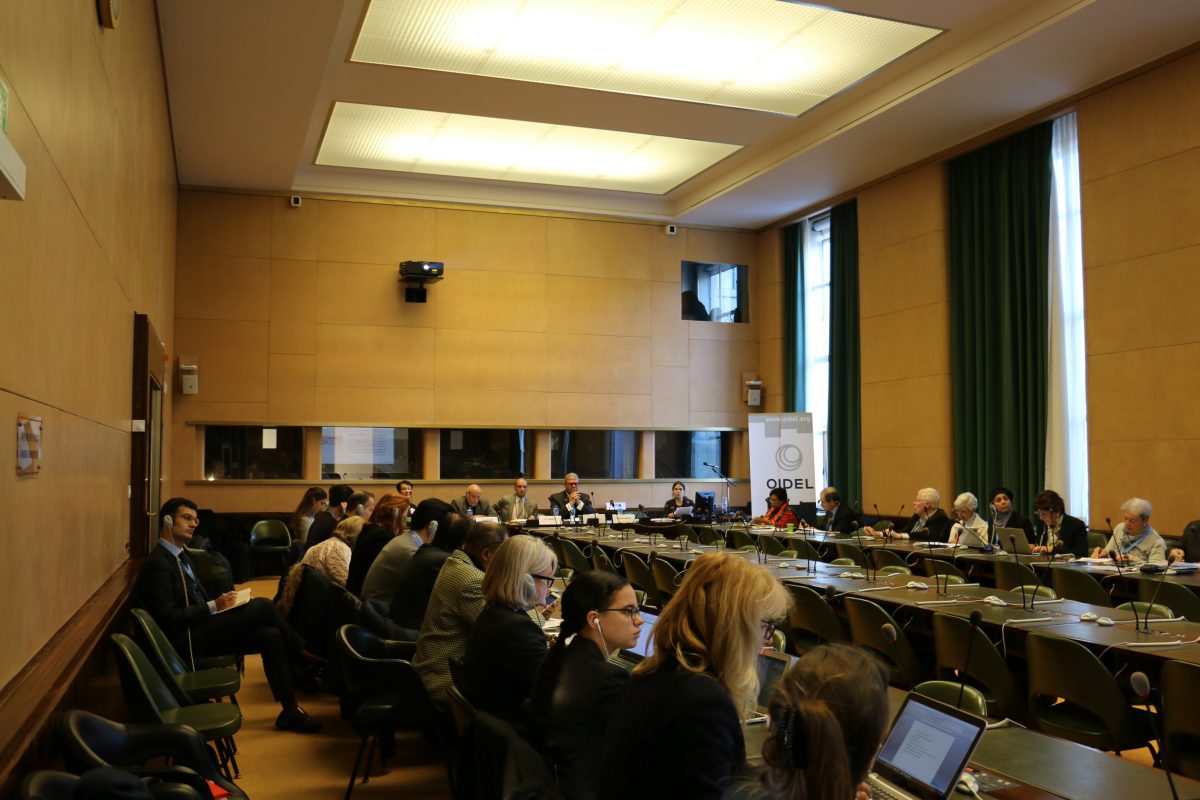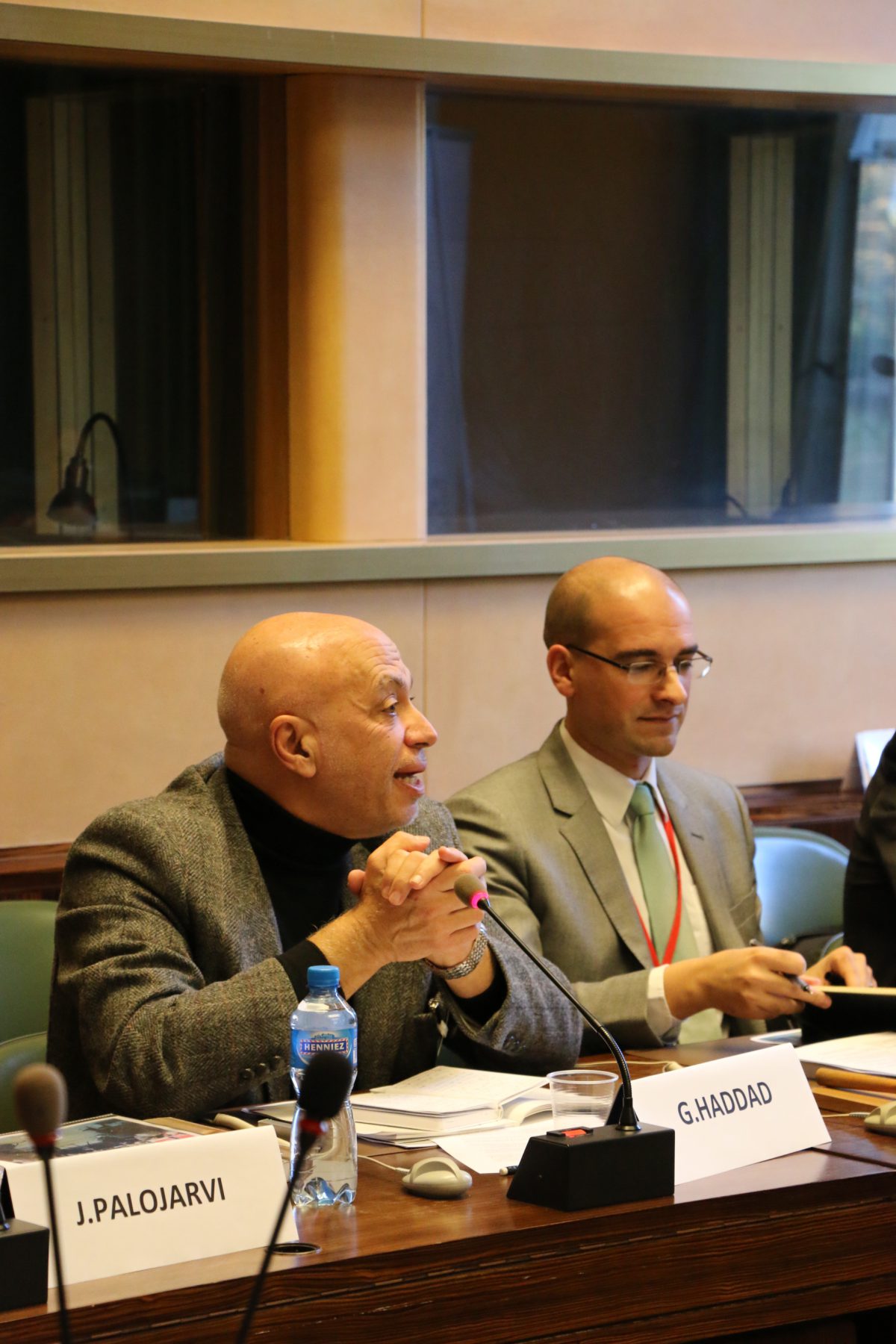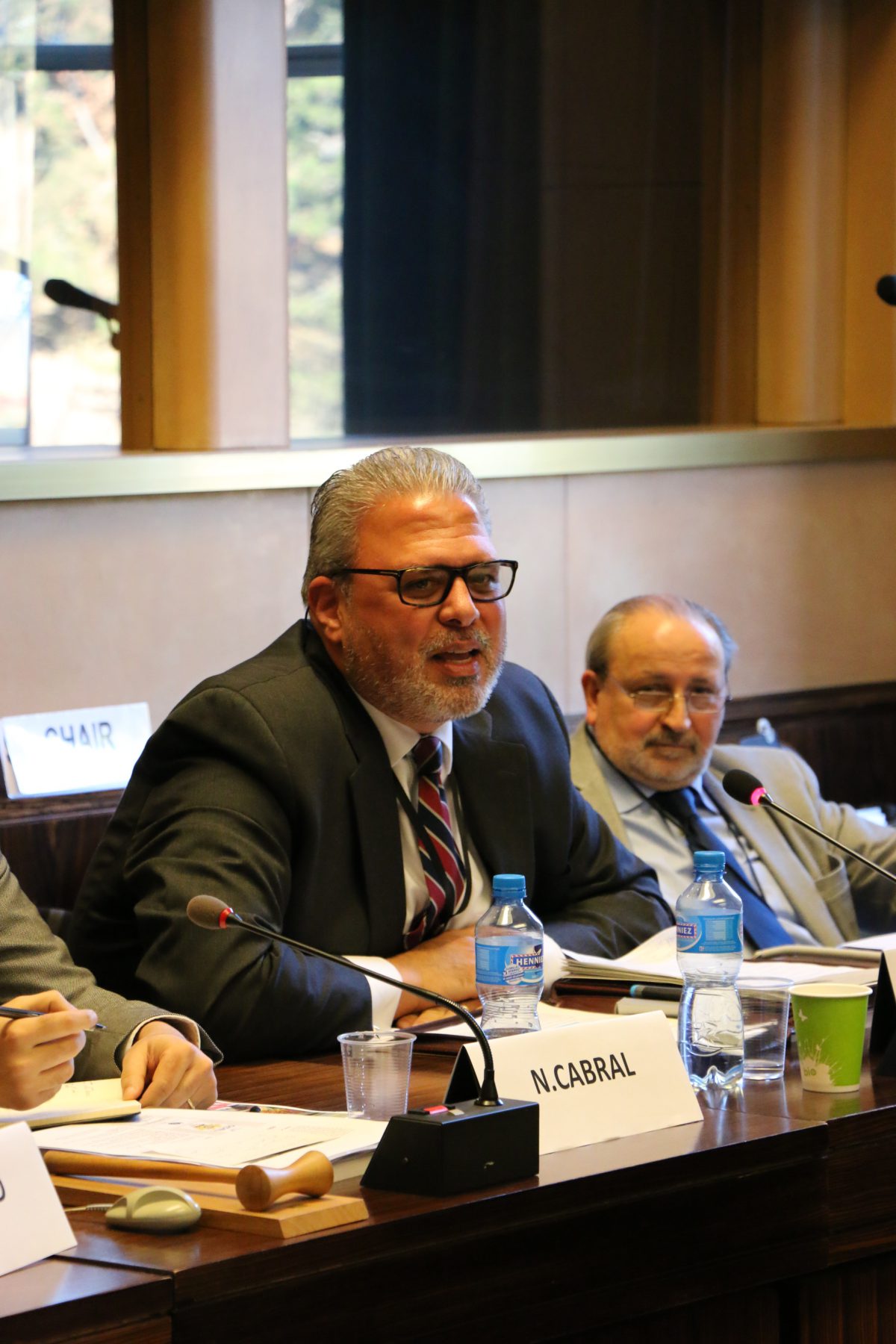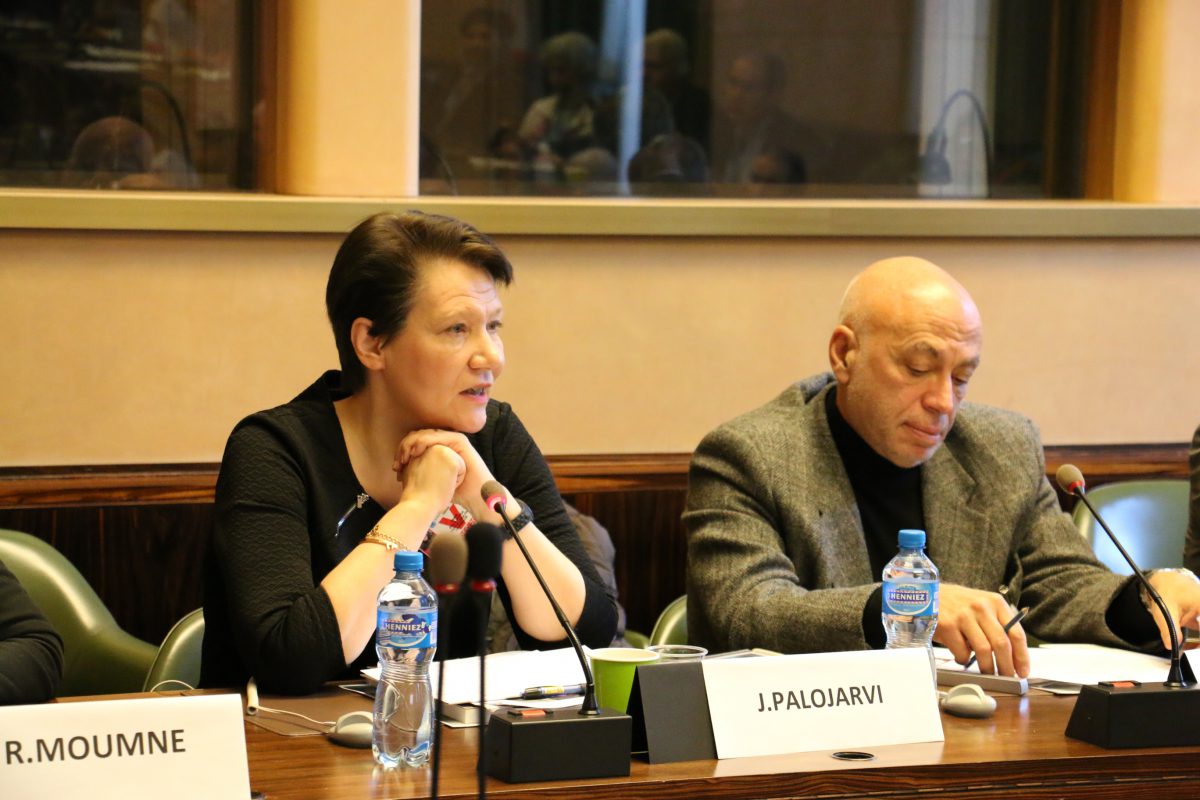The 4th of December 2017 OIDEL together with the Permanent Mission of Portugal and the Permanent Mission of Finland did a lunch event of two documents: the Code of International Educational Law (CIEL) and the Essential content on the Right to Education. The presentation of these two documents was held by Alfred Fernandez, General Director of OIDEL.
The Code of International Educational Law is a compilation of international standards containing the provisions which appear in the right to education norms under concepts taken from the International Instruments of the United Nations, UNESCO and ILO. Thus, this study concerns exclusively the universal system. It aims to give and exhaustive vision of the international right on education and also facilitate a better understanding of this right. The compilation includes provisions from the United Nations, the UNESCO, ILO and others such as Education 2030. This document is also available in French.
The Essential content on the Right to Education complies language from these instruments and others in order to present concrete guidance regarding the right to education. This document intends to clarify what the right to education includes, which circumstances constitute a violation of the right and recommendations from international and regional bodies for fulfilling the right to education.
The event was open with a video message of the Special Rapporteur on the Right to Education, Ms. Bolly. The Special Rapporteur mentions that these kind of documents are essential for the justiciability of the right to education and to encourage the fulfillment of countries obligations. She also mentioned that according to the Framework of Action Education 2030, Civil Society plays a key role on the realization of the right to education in all the stages of the realization of this right. She congratulated OIDEL and publicly encouraged the civil society to continue with these kind of initiatives.
The second speaker was Ms. Rolla, Programme specialist of the Right to Education unit of UNESCO. She mentioned the importance of these kind of documents as they recall that education is not just a tool but a human right and therefore it implies accountability. Ms. Rolla noted that this kind of documents are a good way to support the human rights approach and to support the Agenda 2030 on the right to education. Ms. Rolla took the opportunity to share other good practices that shows the content and accountability of the right to education such as the UNESCO Global Database on the Right to Education.
The third speaker was Mr. George Haddad president of the Université Paris 1 Panthéon Sorbonne. Mr. Haddad mentioned that the right to education has to be understood as the right to be a human being; and therefore the idea of having education established as a right implies a legal frame of this right to be. He highlighted also that we cannot reduce education to just formal education, and we have to take into consideration also the informal and the non-formal education. The role of these educations is also important and implies the recognition of the family. Finally he shared the important document he produced when he was at UNESCO: Rethinking Education: towards a common global good? This document tries to consider education not just a simple accumulation of knowledge, but as construction of the human being throughout life.
The forth speaker was Mr. Bradford Smith Secretary of the Committee on the protection of all migrant workers and their families. He warned that the first victims of the lack of accomplishment of the right to education today are the migrants; and the worst part is that for many migrants the lack of this right is due to a lack of political will. Those who elaborate educational policies have to realize that migration is not a threat, it is a reality and an opportunity, and education plays an essential role on this process.
Ms. Jana Palojarvi, Director of the International Relations of the Ministry of Education and Culture of Finland, shared some of the good practices on how the successful Finish educational system implement the right to education. Ms. Jana Palojarvi remarked the importance of equality and equity as cornerstones of the Finish educational system. She pointed that Finish Administration are aware of the effects that the right to education on other areas this is why they deploy so much efforts on it. Among the good practices she shared that education in Finland is always free of charge including meals and materials, she also shares the respect for all the languages of the country enabling parents to choose between Finish schools and Swedish schools. Finally, she shared good practices regarding migrant’s education.
The event finished with a round of questions and the delivery of the launched books.
* * *

